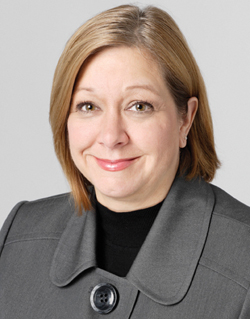Family office recruitment: finding the right fit

Wealth adviser and diplomat are not two professions you might expect to see combined in one job description, but family office executives need skills beyond the traditional requirements of the financial services sector. Finding someone who can preserve and grow wealth for current and future generations and also possesses the sensitivity to deal with anything from family feuds to sudden deaths can be difficult. So how do you find someone with the right skills, who will also fit with the family, and stick around in the long-term?
First, you want to decide exactly what services you want to be managed in-house, says family office adviser Daniel Goldstein. Private bankers or accountants might be the go-to candidates for many family offices, but Goldstein reckons the industry is at such a stage that there are now seasoned family office executives with many years’ specific experience in managing families’ needs.
How the candidate fits into the family office is vital, he explains. “This person will have access to a great deal of very confidential information, so the family needs to feel comfortable with their personality as well as with their professionalism,” says Goldstein.
“If the search is for someone who can run all aspects of a family office, families will find that investment specialists may come up short in other areas. The same principle applies to tax, legal or other specialists.” He emphasises, however, that there is an element of catch-22 at work, in that specialists only gain wider experience by being given the opportunity to manage a family office, but should only be given that opportunity if they already have relevant experience to handle those wider mandates. Fortunately, he repeats, there are now people available with this experience, which was not really the case even as little as 20 years ago.
Skilled up Key skills desired across most disciplines are cultural fit, discretion, appearance, commitment and languages, says Vahe Vartanian, founder and managing director of the Family Office Recruitment Group. Technology skills are also in demand, which is where a generational gap emerges. According to the 2013 UBS/Campden Wealth European Family Offices Survey, family offices report that they expect the greatest skill shortage to be at the senior leadership level over the next three years. Where then should family members look for such candidates? Headhunters are one possible route and networking is another option, says Goldstein, and he recommends recruiting a proprietary family office executive. “The proprietary executive is working solely in the interests of the family and will not be creating side-structures or deals or have a misalignment of interests,” he says.
Key skills desired across most disciplines are cultural fit, discretion, appearance, commitment and languages, says Vahe Vartanian, founder and managing director of the Family Office Recruitment Group. Technology skills are also in demand, which is where a generational gap emerges. According to the 2013 UBS/Campden Wealth European Family Offices Survey, family offices report that they expect the greatest skill shortage to be at the senior leadership level over the next three years. Where then should family members look for such candidates? Headhunters are one possible route and networking is another option, says Goldstein, and he recommends recruiting a proprietary family office executive. “The proprietary executive is working solely in the interests of the family and will not be creating side-structures or deals or have a misalignment of interests,” he says.
In a single family office, the small environment also means there is no room for people who expect to delegate some tasks, which they might consider menial, to junior staff. TY Danjuma Family Office chief executive Geoffroy Dedieu explains: “Some of that old fashioned hierarchical culture is still strong in some banks, but we cannot have that kind of arrogance here. In a single family office environment, it is also important to hire people who are not particularly impressed by money and material wealth – one needs to keep a cool head in the face of large figures, jets and island villas.”
At US-based multi family office (MFO) GenSpring Family Offices, the firm’s family wealth advisers typically have experience as practising attorneys or accountants (or both) explains chief wealth advisory officer David Bokman. They advise on areas including tax, estate planning, financial planning, family education and governance. On the other hand, the firm’s family investment officers usually come from an investment management background where they have experience in portfolio construction. “In both cases, we look for seasoned professionals who have been challenged by years of experience with UHNW families,” says Bokman.
Chief operating officer Michael Santone estimates that the salaries on offer in his industry are slightly higher than those offered by private banks. “The UHNW client serviced by a MFO has a level of financial sophistication from a tax, investment, or estate planning perspective that requires the most talented of professionals and there is usually a premium paid to get the top talent.”
Retaining and rewarding
Retaining talent is important, Vartanian says. “Attractions include the work environment, job stability and prestige, and bonuses are also offered in addition to base salary. Staff are often treated as part of the family and can sometimes have access to some of the physical assets.” Dedieu says family offices are a destination of choice because of the emergence of the sector as a key player in wealth management, not simply because a few bankers lost their jobs three or four years ago.
Dedieu says they offer employees a dynamic, entrepreneurial environment. “The learning curve for younger team members is extremely steep and they love it. Some family offices will suffer if the UK economy picks itself up as they may not have created such a learning environment and their systems and processes are a little basic. But then again, some banks will also see bankers leave if career upgrading opportunities are now available.”
TY Danjuma Family Office benchmarks salaries to comparable jobs and levels in the relevant industries (properties, accounting & auditing, fund management, compliance, art management) and its portfolio managers are compensated on a quantitative bonus scheme benchmarked with the City of London. In the case of GenSpring Family Offices, multiple deferred compensation programmes are used as a reward and retention mechanism to support and encourage long-term careers.
 Sherry Lehmann (pictured left), director of human resources at Laird Norton Wealth Management, agrees that savvy candidates will continue to see well-run family offices as a good career choice. “Following this most recent cycle, we have seen a slight increase in questions focused on profitability and future strategy from our more senior candidates. These are always good questions to ask, even when the economy is strong.”
Sherry Lehmann (pictured left), director of human resources at Laird Norton Wealth Management, agrees that savvy candidates will continue to see well-run family offices as a good career choice. “Following this most recent cycle, we have seen a slight increase in questions focused on profitability and future strategy from our more senior candidates. These are always good questions to ask, even when the economy is strong.”
The current average length of service for a Laird Norton Wealth Management employee is just over seven years. “For those interested in moving to the next level, we partner with them to identify skill gaps and developmental opportunities to gain the skills,” adds Lehmann. “For those wanting to remain in a position or level in the longer term, we look to find ways to keep the work interesting. We also look for ways to provide cross-function and cross-department opportunities to promote greater learning and understanding.”
According to Kate Griffiths-Lambeth, global head of human resources for MFO Stonehage, the global economic downturn led to a significant increase in speculative applications to family offices and independent asset management firms. “The environment in which we operate is constantly changing [due to new regulations, areas of interest, global occurrences] so an on-going thirst for learning and a desire to enhance personal knowledge is key.”
Stonehage supports employee training and development, she continues. “We have an industry-leading leadership development programme, designed in conjunction with the Judge Business School at Cambridge University and increasingly we are offering equity to employees across the group. We also encourage secondments. We have commenced presenting at a small group of universities, with a view to attracting graduates both as interns and ultimately on to our newly established graduate programme.”
One disadvantage for family offices during recruitment is the inability to offer a clear career path, something that can lead to employee dissatisfaction, according to Paul Westall, founding partner at Agreus – a global family office and wealth management advisory and recruitment firm. Westall says a planned strategy is required in the hiring process to determine whether candidates are willing to change their career path and can fully commit to the family. “The more detailed and thorough the strategy, the better the chance of success when hiring. This strategy will not only include the long-term plan for the family office but also the long-term plan for the employee’s career. Communicating information of future events such as change in family structure, potential sale of large assets/business, global expansion and/or exit strategies will help to identify the right person.”
We’ve got to talk
Finally, what can family offices do if a candidate does not work out? Westall believes that family offices are an attractive career option for many professionals, but advises hiring managers to determine the type and level of experience that a candidate will require to successfully complete the role while also feeling challenged.
“I would always advise to identify the problem immediately and try and resolve where possible, which may involve bringing all relevant stakeholders into the discussion,” says Westall.
“If there are issues that cannot be resolved it would be prudent to terminate the working relationship as soon as possible. The termination process between employer and employee should be managed very carefully as there is reputational risk to take into consideration.”
Finding the candidate who ticks all the boxes may seem like a tall order, but Vartanian emphasises that the sector is characterised by longevity. The good news is that time taken to find the executive will ensure that you find someone fit for the long-term.
The family office executive 2.0 What does the resumé of a proprietary family office executive look like? Just as there is not a one-size-fits-all model for family offices, there is not just one path for becoming a seasoned family office executive. Daniel Goldstein (pictured right) began his career in finance in the US working in a custody bank and in the executive branch of state government. After two Master’s degrees, one in science and technology, and an MBA in finance, he worked on a two-person team for a US family foundation investing their $1.25 billion (€909.5 million) portfolio.
What does the resumé of a proprietary family office executive look like? Just as there is not a one-size-fits-all model for family offices, there is not just one path for becoming a seasoned family office executive. Daniel Goldstein (pictured right) began his career in finance in the US working in a custody bank and in the executive branch of state government. After two Master’s degrees, one in science and technology, and an MBA in finance, he worked on a two-person team for a US family foundation investing their $1.25 billion (€909.5 million) portfolio.
He then moved to Europe where he developed a family office for a European family. There he directed their liquid investments, overseeing their international mixed-use real estate portfolio and managed cross-border structuring. He was also involved in family concierge services and creating an international philanthropic programme within a family foundation to serve children with serious illness. He’s done everything from negotiating the joint venture and phased buyout of a high tech surgical equipment family business to structuring a 210-unit condominium development for a family.
Key questions checklist
Each family will have different circumstances to consider, so to help, we’ve created a checklist of key interview questions to ask prospective family office executives.
1. Why do you want to continue working with a family/family office?
2. How do you view the relationship between yourself and family members? What challenges may arise and how have you managed these in the past?
3. What do you expect from the family?
4. What are your longer-term life goals?
5. Give specific examples of mentoring relationships you have had and of conflict resolution you have managed?
6. What are the most critical things you have learned working with families?
7. Describe your values that have guided your professional and personal path through life?
8. What is your passion in life?






